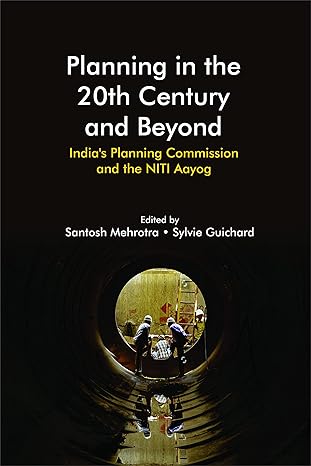Go back


Planning In The 20th Century And Beyond Indias Planning Commission And The Niti Aayog(1st Edition)
Authors:
Santosh Mehrotra ,Sylvie Guichard

Cover Type:Hardcover
Condition:Used
In Stock
Include with your book
Free shipping: May 14, 2024Popular items with books
Access to 3 Million+ solutions
Free ✝
Ask 10 Questions from expert
200,000+ Expert answers
✝ 7 days-trial
Total Price:
$0
List Price: $120.00
Savings: $120(100%)
Book details
ISBN: 1108494625, 978-1108494625
Book publisher: Cambridge University Press
Get your hands on the best-selling book Planning In The 20th Century And Beyond Indias Planning Commission And The Niti Aayog 1st Edition for free. Feed your curiosity and let your imagination soar with the best stories coming out to you without hefty price tags. Browse SolutionInn to discover a treasure trove of fiction and non-fiction books where every page leads the reader to an undiscovered world. Start your literary adventure right away and also enjoy free shipping of these complimentary books to your door.








